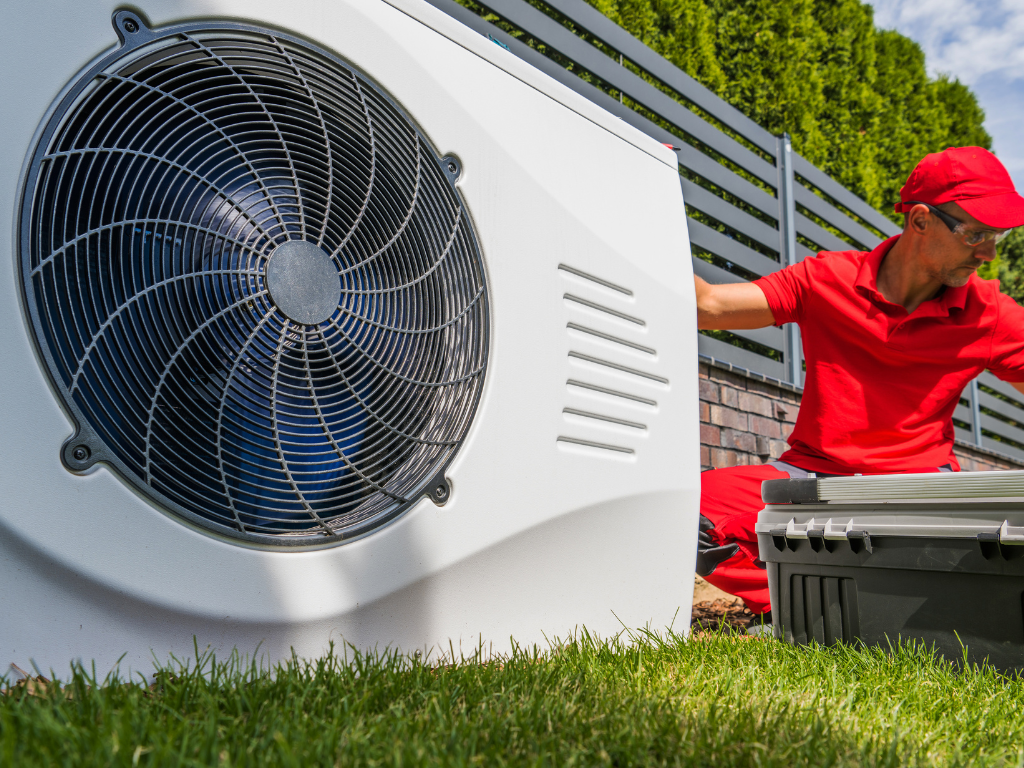Dive in confidently as we explore the key factors influencing the costs associated with installing a pool heater. From cutting-edge technology to energy-efficient solutions, we’re here to guide you through the nuances of pool heating installations. But that’s not all – we understand that a well-maintained pool area contributes to the overall experience, so we’ve teamed up with top-tier pool screen repair contractors.
As you navigate the realm of pool heater costs, we’ll also shed light on the importance of a well-functioning pool screen. These contractors ensure your pool area remains a serene haven, shielded from unwanted debris and pests.
So, if you’re ready to transform your poolside experience into a year-round retreat without breaking the bank, join us on this exploration of “Warm Waters, Cool Costs.” Let’s unravel the expenses and find the perfect balance between comfort and affordability for installing your pool heater.
Factors Impacting the Cost of Pool Heater Installation
Installing a pool heater will cost you more if you don’t have an existing heater in your pool. If this is the first time you install a heater, you will likely need to run gas or electric lines.
Location and Climate
Not all cities will have the same utilities. In some areas of the United States, gas hookups are readily available. Other areas may have only electricity. You will likely need to base your decision on the location.
Consider your climate. Solar-powered pool heaters are more common in areas that receive more sunlight. The temperature outside will likely heat the pool for you most of the time.
Remove the Old Pool Heater
Depending on the difficulty of removal, it will cost between $25 and $50 to remove an old pool heater. Some specials waive the removal and disposal fees.
Permits
You’ll likely need a permit to install pipes or wires. This is a matter for your local municipality. Permits to install pool heaters range between $50 and $500, depending on your location and the type you want to install.
Size of the Pool
You’ll need 50,000 BTUs per 5,000-10,000 gallons. If you live in a colder climate or use your pool during the winter, double that number. If you are willing to wait longer for the heater to heat up or plan on using solar blankets or a cover, a smaller heater may be sufficient.
| Volume (gallons) | Pool Surface Area (square feet) | Heather Size (BTUs) |
| 1,000 – 10,000 | ≤ 300 square feet | 100,000 – 200,000 |
| 10,001 – 20,000 | 301 – 500 | 200,001 – 300,000 |
| 20,001 – 40,000 | 501 – 800 | 300,001 – 400,000 |
| 40,001 – 80,000 | 801 – 1,200 | 400,000+ |
Hookup Installation
Installing utility lines can cost between $350 and $2,100, depending on the service you want to connect. Installing water pipes for the heater is also required to work with more than one type of pipe.
- Installing gas lines costs between $350-$800
- Installing electrical circuits costs between $500 and $2100
- Installing water lines costs between $350-$1,900
Types of Pool Heaters Available, Their Costs, Pros and Cons
There are four types of pool heaters that you can select from.
- Propane/gas heaters for swimming pools
- Solar pool heaters
- Heat pumps
- Electric resistance heaters
You’ll want to pick the pool heater best suited for your climate and energy source. Also, consider if you want to pay fewer upfront costs for the pool heater unit and more in the long run for monthly usage or vice versa.
Propane and Gas Pool Heater
Propane or gas pool heaters cost between $2,000 to $4,000 for installation. This includes the cost of materials and the labor associated with installing one. You can save significantly on labor costs if an existing gas line runs to your home. If not, you’ll need to opt for a propane tank or look into the feasibility of hooking up to gas.
While gas and propane pool heaters have a lower upfront cost, they tend to have a higher monthly cost, ranging from $200 to $850. If you live in a climate where it’s relatively cold year-round, you may spend more on running the heater in just a couple of years. However, gas and propane pool heaters work quickly to heat a pool and have great temperature control.
Solar Pool Heater
Solar pool heaters cost between $3,000 to $4,000 with installation and materials accounted for. While these pool heaters tend to have a larger upfront cost, their monthly costs are significantly less, coming in at around $0 to $10 monthly. However, they completely rely on sunlight, only making them ideal in sunnier states such as Arizona, California, Florida, and Texas.
Consider adding solar panels to reduce gas or electric heater operating costs. When there’s a bright yet chilly day, you can still harness solar power to keep your pool nice and warm. Solar pool heaters can’t normally set a temperature and tend to keep the pool at a pleasant temperature passively instead.
Pool Heat Pump
Pool heat pumps cost around $2,000 to $5,000 on average. Unlike gas or electric heaters, which generate heat for the water, heat pumps utilize the air around them to heat the water. Pool heat pumps cost between $120 to $200 per month, making them more efficient than propane or electric options. They do, however, come with a greater upfront cost.
Because heat pumps rely on air, they aren’t the ideal option to heat a pool, despite their efficiency. Pool heat pumps rely on the air to heat the water, so if it’s really cold out, it will take much longer to get the air back up to a reasonable temperature. This significantly cuts down on the time to heat a pool.
Electric Resistance Heaters
Electric resistance heaters will cost around $2,000 to $5,000 when considering labor and materials. Not only do electric resistance heaters require a higher upfront cost, but they also don’t tend to have the best efficiency. The cost to run an electric resistance pool heater is anywhere from $175 to $600 monthly.
Ideally, you’d only want an electric resistance pool heater if it rarely falls below 55 degrees Fahrenheit in your area. Anything lower than that, your electric resistance pool heater will have a tough time keeping your pool warm.
Cost to DIY Install a Pool Heater vs. Hiring a Pro Pool Screen Repair Contractors
Installing a pool heater will fall between $1,500 and $4,000 for the pool heating unit. You’ll effectively save around $300 to $1,000 in labor costs through this method. This only really applies if you have an existing pool heater in place.
If you need new gas lines, water lines, or electric wiring installation to the pool heater, let a pool heater installer near you handle this operation. Mixing electricity or gas with water is already dangerous enough even when you’re a professional, so eliminate as many potential hazards as possible and let the pros handle the installation.
Why Should You Install a Pool Heater?
A pool costs between $18,000 to $46,500 to install. However, considering location is important. Only having the option to use the pool during certain months of the year makes it feel like you won’t receive your ROI and usage.
Average Cost to Run a Pool Heater
The costs of running your pool heater will increase yearly and even monthly. Utility costs will vary from state to state as well. So, even if you had the same temperature conditions in two different states, you might come out with different monthly costs.
| Type of Heater | Cost to Run per Month | Cost to Run per Year |
| Propane | $200 – $850 | $2,400 – $10,200 |
| Gas | $200 – $400 | $2,400 – $4,800 |
| Electric Resistance | $175 – $600 | $2,100 – $7,200 |
| Heat Pump | $120 – $200 | $1,450 – $2,400 |
| Solar | $0 – $10 | $0 – $120 |
How to Save Money on Pool Heater Operation
One of the best ways to save money on pool heater operating costs is to purchase a pool cover. A pool cover costs around $650 to $2,350 to install. Installing a pool cover will reduce heating costs from 50% to 90%. They also have no operating costs.
Solar blankets are another type of pool cover used to help pools retain heat. A solar blanket will fall between $50 to $500.
You could also opt to build a pool enclosure. Building a pool enclosure will average between $5,300 and $15,600. While the pool is still technically outside in a non-climate controlled area, putting the pool in a glass enclosure will help the inside maintain heat, similar to a greenhouse.
Conclusion
In our journey through the intricacies of pool heater installation costs, we’ve unveiled the factors that shape this essential investment in turning your pool into a year-round haven. Each detail is crucial in determining the expenses, from fuel choice to location-specific considerations.
Now equipped with a comprehensive understanding of the costs and choices associated with pool heaters, it’s time to take the plunge into transforming your aquatic oasis. And for those seeking top-notch pool screen repair services, look no further than Pool Screen Repair Services Bradenton LTD.
Are you ready to turn your pool into a year-round retreat without compromising comfort or breaking the bank? Contact Pool Screen Repair Services Bradenton LTD today! Our team of skilled professionals is ready to enhance your poolside experience by ensuring a well-functioning pool heater and a meticulously repaired pool screen. Your comfort awaits – let’s make it a reality together!
FAQs
Can you add a pool heater to an existing pool?
Yes, you can add a pool heater to an existing pool, so long as your yard has the space for a heater. Most pools are built without heaters, so it’s not uncommon for companies to receive requests from homeowners looking to install pool heaters onto existing pools.
Does a pool heater need to run at all times?
No, a pool heater does not need to run all the time. A pool heater requires 24 to 72 hours to fully heat a pool, so you should prepare and run it before you get in and shut it off if you don’t plan to use it afterward. Opt for a pool cover after you’ve heated it to allow the water to maintain its temperature for longer.
Can a pool heater freeze?
Yes, a pool heater can freeze and cause damage to internal components. Constantly cycling water, sealing your pool in the winter (winterizing your pool), and regular maintenance servicing should help prevent the freezing of a pool heater.
How long does a pool heater last?
A pool heater will last between 6 to 12 years on average, so long as it’s properly maintained. Regularly service the pool heater and address any repairs immediately to prevent a complete replacement.

